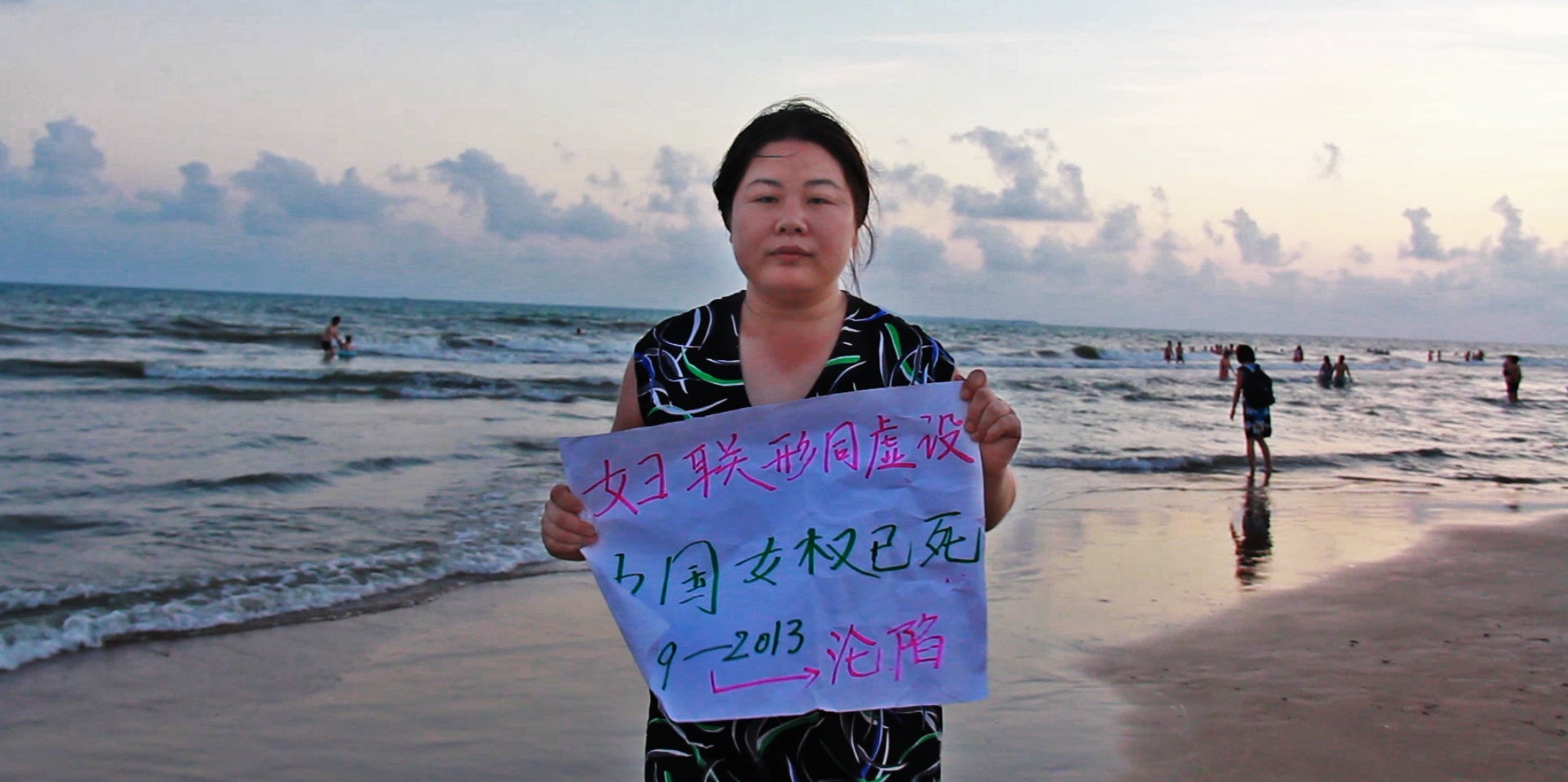Documentary “Hooligan Sparrow” shows how dangerous it is to protest against rape in China
The documentary film Hooligan Sparrow begins with Wang Nanfu, a fresh journalism school graduate, introducing herself while standing on a busy street. Seconds later, she is surrounded by a group of men. They egg each other on, threatening to smash her camera and daring her to continue filming. “This is the story I captured before they took the camera from me,” Wang says in a voice over.


The documentary film Hooligan Sparrow begins with Wang Nanfu, a fresh journalism school graduate, introducing herself while standing on a busy street. Seconds later, she is surrounded by a group of men. They egg each other on, threatening to smash her camera and daring her to continue filming. “This is the story I captured before they took the camera from me,” Wang says in a voice over.
The rest of the documentary is even more violent, but Wang’s subjects appear better prepared. When eleven people storm into the home of a Chinese women’s rights activist named Ye Haiyan, who also goes by the name “Hooligan Sparrow” (link in Chinese), Ye deftly fights off their attacks with a meat cleaver.
Hooligan Sparrow, Wang’s first film, was an official selection of the 2016 Sundance Film Festival and debuts this month on the POV series on PBS and on Netflix. The severe harassment it documents of women’s rights activists is part of a broader clampdown on civil society in China. Last summer, police questioned or detained over 300 human rights lawyers and activists. At least a dozen are yet to stand trial.
Days before the attack on Ye’s home, during the summer of 2013 covered in the documentary, Ye had organized a small protest in the southern island province of Hainan, where she held up a poster saying, “Principal, get a room with me—leave the school kids alone.” A photo of Ye with her sign went viral, raising awareness of a spate of sexual assaults in China against schoolchildren. At the time, Ye was already widely known for volunteering to work for free in a brothel in order to draw attention to sex workers’ rights.
Like Ye, Wang is from a poor village in China. Wang taught herself English and won scholarships that allowed her to study journalism in Ohio and New York. She was planning on making a documentary about Chinese sex workers when Ye invited her to film their protest.
Their Hainan protest was aimed at a school principal and a local government official, who had taken six female students aged 11 to 14 to a hotel and raped them over a 24-hour period. The men claimed they thought the girls were sex workers. They were each sentenced to less than 14 years in jail, reflecting the fact that the punishment for “engaging in sex with underage prostitutes” in China used to be only five to 15 years in prison. The “prostitute” label was a criminal classification that legal experts said shamed child victims into silence and let rapists off the hook.
In the film, Wang follows Ye and her fellow activists as police and hired thugs chase them from town to town. In one chilling scene, only the sounds of Ye getting beaten can be heard. Wang is also followed and interrogated, with her camera jerking wildly as she tries to run away. All of this happened because a small group of women were successfully raising awareness, mostly through social media, about sexual assault cases.
Anti-rape activism wasn’t always so controversial in China. Before president Xi Jinping came to power in 2012, authorities seemed relatively tolerant of advocacy around women’s issues, compared to causes such as religious freedom and land rights.
Female activists who are currently in jail include former primary school teacher Su Changlan, who faces up to 15 years in prison on the charge of “inciting subversion of state power.” Su is a former volunteer for the New York-based Women’s Rights in China group, and has campaigned for an end to violence against women, and assisted women who were forced to abort children to comply with China’s family planning system.
After shutting down Ye’s activism and driving Wang out of the country, authorities made an even stronger statement last year by arresting five young feminist activists, shortly before International Women’s Day on March 8. The five were planning to distribute stickers with slogans, including a call for police to arrest sexual harassment suspects, when they were detained.
“Ye can’t hold street protests anymore. She has trouble traveling because she is under constant surveillance, and her passport has been taken away,” said Wang, who is married to an American and lives in New York. “Police threatened my family and urged them to stop me from making my documentary. I haven’t tried to go back to China yet. I don’t know if it’ll be safe to go.”